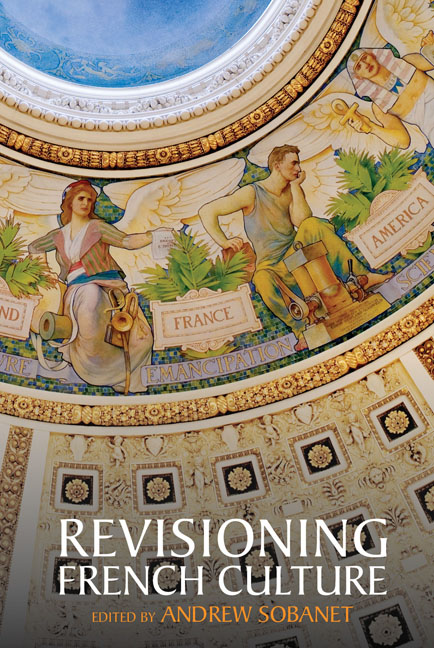Book contents
- Frontmatter
- Contents
- Introduction
- I France in Perspective: The Hexagon, Francophonie, Europe
- II Visions of the World Wars, or L’Histoire avec sa grande hache
- III Refractions and Reflections
- IV French Literature, Revisioned
- V The Subject in Focus
- VI Philosophical Lenses
- VII Coda
- Contributors
- Acknowledgments
- Index
1 - The Metamorphosis
- Frontmatter
- Contents
- Introduction
- I France in Perspective: The Hexagon, Francophonie, Europe
- II Visions of the World Wars, or L’Histoire avec sa grande hache
- III Refractions and Reflections
- IV French Literature, Revisioned
- V The Subject in Focus
- VI Philosophical Lenses
- VII Coda
- Contributors
- Acknowledgments
- Index
Summary
France has experienced a disruption to its historical identity in the last thirty or forty years, a metamorphosis that has seen it shift from one type of nation to another. A transformation from a warrior nation-state, primarily rural, Christian, imperialist, and messianic to a France breached in all its dimensions, a France that continues to search for its identity, often in pain. One could readily call this new type of identity democratic, on the condition that we not see in this word the victory of a model that would be foreign to republicanism (an American model, for example, as juxtaposed with the French model, per the comparison made by Régis Debray in the 1980s), but rather an historical evolution of the republican model itself. This evolution has consisted (if we may simplify to the extreme) of a turn: for a series of historical reasons, while the national-republican idea was eroding away, a new model slowly became more prominent—a model of social identities, bearing a profound reorganization of forms of being-together (l’être-ensemble).
The Exhaustion of a Model
If we can say that peace has been, since the end of the Algerian War, one of the most powerful elements in the transformation of the traditional model of national identity, it is because it arrived at the precise moment that marked the end of a century in which France fought three wars. Three wars that were paid for in defeat, but disguised defeats, whose effects were delayed and all the more devastating as a result. The hollow victory of 1918 did not reveal itself as the suicide of all of Europe and as the matrix of all the ills of the twentieth century until after the fall of Nazi Germany, and even that of Soviet communism. The events of 1945 and the place that de Gaulle managed to obtain for France among the greats furnished only a temporary forgetting of the clear defeat of 1940. Barely had de Gaulle exited the scene when, at the beginning of the 1970s, the dark memory of Pétain's France and the occupation returned. As for 1962, de Gaulle put everything in place to make the French forget the folding of the flag and the debacle in Algeria—via France’s entry into the nuclear club and by launching an economic revival.
- Type
- Chapter
- Information
- Revisioning French Culture , pp. 17 - 30Publisher: Liverpool University PressPrint publication year: 2019

